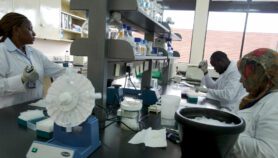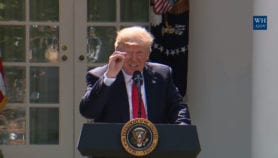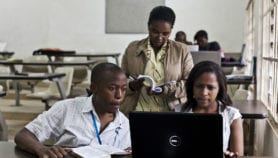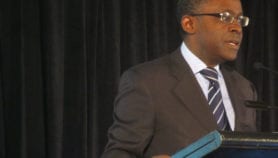Send to a friend
The details you provide on this page will not be used to send unsolicited email, and will not be sold to a 3rd party. See privacy policy.
The United States secretary of state, Condoleezza Rice, has named plant geneticist Nina Fedoroff as her new science and technology adviser.
Federoff will take up the three-year post in the Department of State next week (6 August), replacing George H. Atkinson.
The Department of State determines US foreign policy, and is the equivalent of foreign affairs departments in other countries. It’s policies about science and technology potentially influence the developing world.
The Bush administration created the role of science and technology adviser in 2000 to inform foreign policy on issues in science, technology and health.
Fedoroff, professor of life sciences at Pennsylvania State University, is a leading geneticist and plant biologist, as well as a member of the National Academy of Sciences. She is an expert in plant ‘jumping genes’ and has written a book about genetic modification.
As science and technology adviser, Fedoroff will play an important role in improving the scientific literacy of the Department of State and acting as a conduit between the scientific and political communities. She will also be responsible for encouraging scientists to become more involved in politics at home and in missions abroad.
Richard Bissell, executive director of policy and global affairs at the United States National Research Council, told SciDev.Net that Fedoroff’s appointment is particularly timely as research and regulations regarding the life sciences are being debated on a global scale.
John Daly, freelance consultant and former director of the Office of Research of the Agency for International Development, says, "I am especially enthusiastic about Dr Fedoroff’s potential contributions because her expertise on the biotechnology of plants and foods can help assure that US foreign policy deals effectively with the applications of biotechnology in agriculture."
"Dr Federoff also seems to be one of those rare scientists who can not only write for a scientific audience, but can explain her science to the public," he adds.
Federoff’s appointment comes at a time when the US government is facing questions regarding transparency. According to the Washington Post newspaper, a surgeon general’s report on global health was withheld from the public domain in 2006 because it did not report the achievements of the administration’s policy.
The report supposedly described the link between poverty and health, urged the United States government to prioritise combating global disease in foreign policy and called on businesses to help in improving health conditions in any countries in which they operate.













